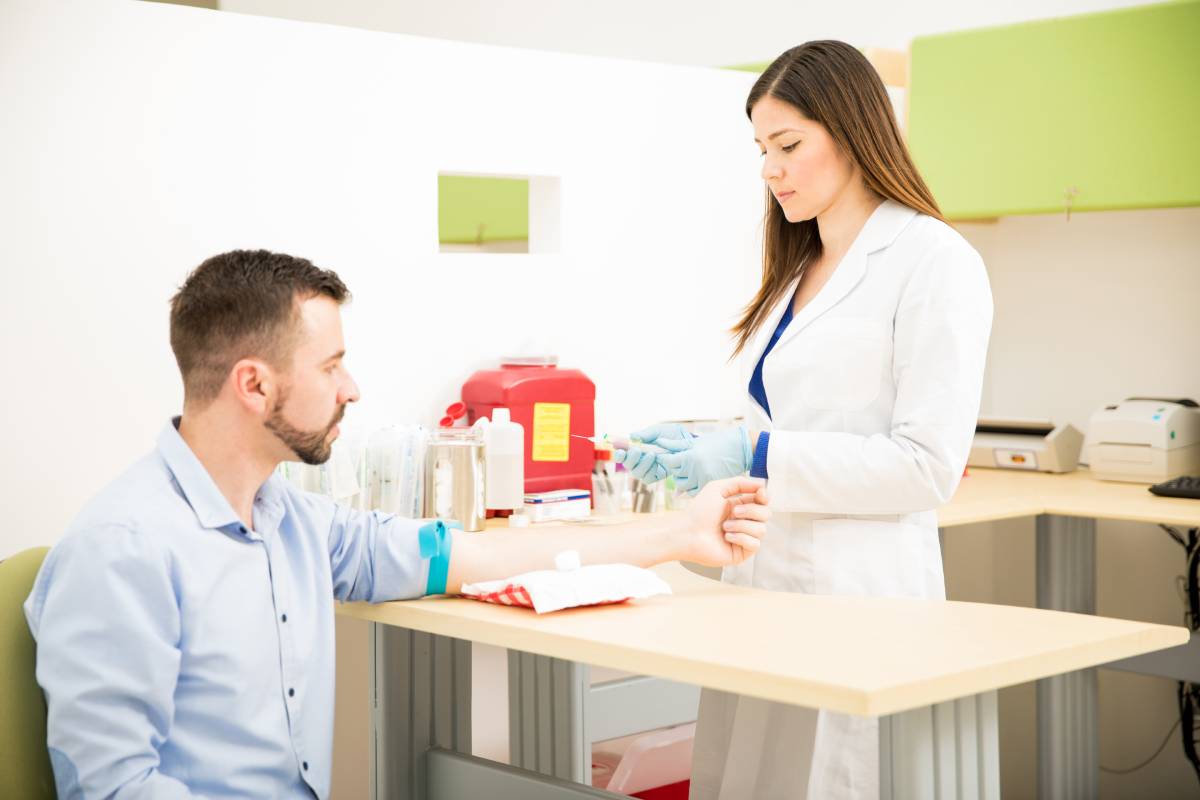Diagnosis of Autoimmune Hepatitis
How do doctors diagnose autoimmune hepatitis?
Doctors diagnose autoimmune hepatitis based on a combination of information from your medical history, a physical exam, and tests.
Medical history
Your doctor will ask about your symptoms and other factors that could be damaging your liver. For example, your doctor may ask about any medicines and herbal or botanical products you take and how much alcohol you drink. Your doctor will ask you about other autoimmune diseases you might have, such as inflammatory bowel disease or thyroid conditions.
Physical exam
During a physical exam, the doctor will check for signs of liver damage, such as
- yellowish color of the whites of the eyes
- changes in the skin
- enlargement of the liver or spleen
- tenderness or swelling in the abdomen, or belly
- swelling in the lower legs, feet, or ankles, called edema
What tests do doctors use to diagnose autoimmune hepatitis?
Your doctor may order blood tests, imaging tests, and a liver biopsy to diagnose autoimmune hepatitis. No single test can diagnose autoimmune hepatitis. In most cases, doctors order a combination of tests, including a liver biopsy, to make a diagnosis.
Blood tests
Your doctor may order one or more blood tests to look for signs of autoimmune hepatitis or other liver diseases. A health care professional will take a blood sample from you and send the sample to a lab.
Liver tests
Liver tests can check levels of the liver enzymes alanine aminotransferase (ALT) and aspartate aminotransferase (AST). ALT and AST are particularly important because these liver enzymes are highly elevated in people with autoimmune hepatitis. Doctors check ALT and AST levels to follow the progress of the disease and how it responds to treatment.
Antibody tests
Doctors order antibody tests to check for autoantibodies—antibodies that attack your healthy tissues and cells by mistake—such as antinuclear antibody (ANA) and anti-smooth muscle antibody (SMA). Doctors may also order blood tests to check levels of a type of protein called immunoglobulin G (IgG).
Other blood tests
Doctors order additional blood tests to look for other liver diseases that have symptoms similar to autoimmune hepatitis, such as viral hepatitis, primary biliary cholangitis, primary sclerosing cholangitis, nonalcoholic steatohepatitis (NASH), or Wilson disease.
 Doctors use blood tests to look for signs of autoimmune hepatitis or other liver diseases.
Doctors use blood tests to look for signs of autoimmune hepatitis or other liver diseases.Imaging tests
Your doctor may order imaging tests of your abdomen and liver.
Ultrasound
Ultrasound uses a hand-held device, called a transducer, that bounces safe, painless sound waves off organs to create images of their structure. An ultrasound can show whether the liver is enlarged, has an abnormal shape or texture, or has blocked bile ducts.
Computed tomography (CT)
CT uses a combination of x-rays and computer technology to create images. A CT scan can show the size and shape of the liver and spleen and whether there are signs of cirrhosis.
Magnetic resonance imaging (MRI)
MRI uses radio waves and magnets to produce detailed images of organs and soft tissues without using x-rays. An MRI scan can show the shape and size of the liver and detect evidence of cirrhosis. Special MRI scans can estimate the amount of fat and scarring in the liver.
Liver biopsy
During a liver biopsy, a doctor will take a piece of tissue from your liver. A pathologist will examine the tissue under a microscope to look for the amount of damage and features of specific liver diseases. A doctor can use a liver biopsy to look for the features of autoimmune hepatitis and to check the amount of scarring to find out if you have cirrhosis.
This content is provided as a service of the National Institute of Diabetes and Digestive and Kidney Diseases
(NIDDK), part of the National Institutes of Health. NIDDK translates and disseminates research findings to increase knowledge and understanding about health and disease among patients, health professionals, and the public. Content produced by NIDDK is carefully reviewed by NIDDK scientists and other experts.

